
Smarter email, faster business.
Auto-tag, parse, and respond to RFQs, quotes, orders, and more — instantly.
Royal Air Maroc Plans to Order Several Airbus Jets
May 12, 2025By ePlane AI
0
0
Royal Air Maroc
Airbus Order
A320neo
More news
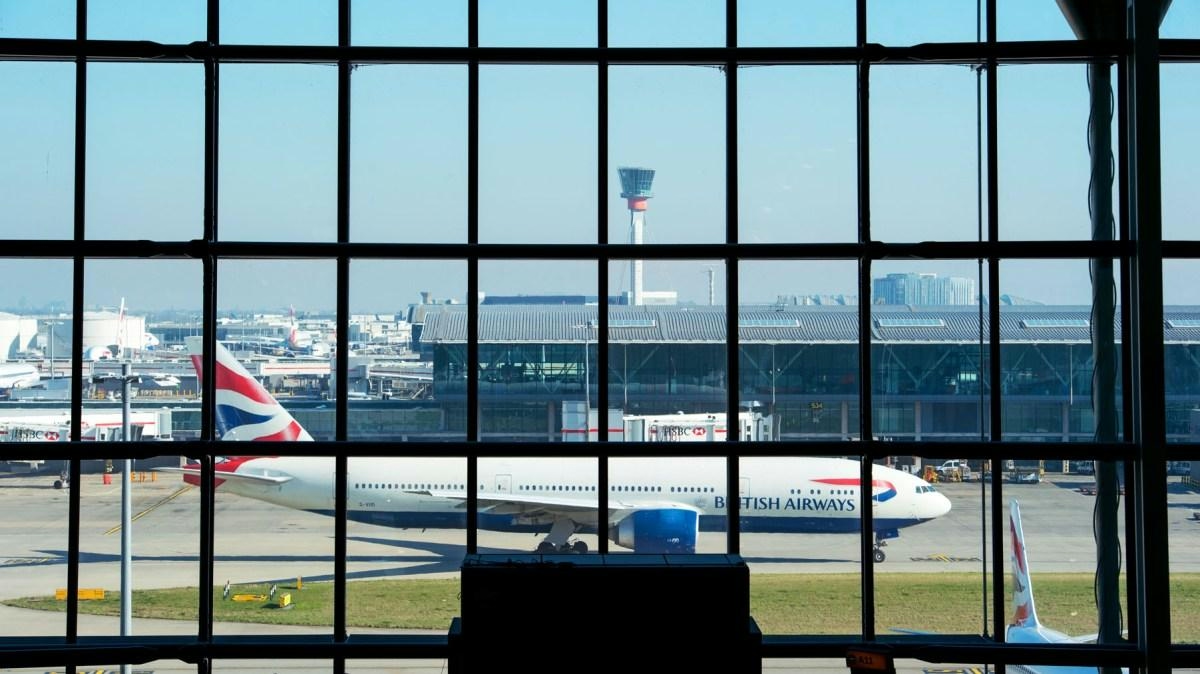
British Airways Employs AI to Reduce Delays and Cancellations
British Airways Employs AI to Reduce Delays and Cancellations
On a warm June afternoon at Heathrow Terminal 5’s remote stand 572, British Airways flight 343 from Nice experienced a delay, arriving nearly 40 minutes behind schedule after a routine go-around to avoid runway congestion. While such delays are common at Europe’s busiest airport, this particular turnaround marked a significant milestone: British Airways employed exclusively zero-emission ground equipment for the first time. The operation utilized buses powered by vegetable oil, lithium battery baggage tugs, and electric passenger steps, reflecting the airline’s commitment to sustainability alongside operational efficiency.
A Multibillion-Pound Transformation
This sustainable upgrade forms part of a broader, multibillion-pound transformation aimed at enhancing efficiency and reducing delays for passengers. British Airways is preparing for an anticipated surge in summer travel, with aviation data agency Cirium forecasting a record 52 million passengers between June and August, surpassing last year’s 51 million. The combination of rising passenger volumes and ongoing concerns about air traffic control disruptions—exacerbated by hot weather and potential strikes—has intensified pressure on airlines to optimize their operations.
In response, British Airways has invested £100 million in advanced artificial intelligence (AI) forecasting tools designed to improve ground operations at Heathrow. CEO Sean Doyle described this initiative as “devising a better way of working on the ground,” with the primary objective of minimizing delays and cancellations. Early indicators suggest the strategy is bearing fruit: in the first quarter of 2025, 86 percent of British Airways flights operated on time.
Challenges and Industry Implications
Despite promising results, integrating AI into airline operations presents significant challenges. Ensuring that AI systems are trained on data that accurately reflects both current realities and future conditions is essential to prevent flawed decision-making. The aviation sector’s inherent unpredictability—illustrated by the recent suspension of British Airways’ Tel Aviv service amid geopolitical tensions—demands that AI systems remain adaptable to rapidly evolving circumstances.
The airline’s competitors are closely monitoring these developments. Carriers that have yet to implement AI solutions may accelerate their adoption to maintain competitiveness in an increasingly technology-driven industry. Passenger reactions to AI integration are mixed; while many welcome the prospect of fewer delays and cancellations, some express concerns about potential biases embedded in AI decision-making processes.
Alongside AI and sustainability efforts, British Airways is also introducing new cabins on its latest aircraft, such as the A320neo, and has revamped its loyalty program, The Club. As the airline continues to navigate operational challenges and shifting passenger expectations, the effectiveness of its AI and environmental initiatives will be scrutinized not only by travelers but by the wider aviation industry.
Bombardier's $1.7 Billion Deal Signals the Power of Long-Term Service Partnerships in Aviation
Bombardier's $1.7 Billion Deal Signals the Power of Long-Term Service Partnerships in Aviation
Bombardier has established a new precedent in the business aviation sector with a $1.7 billion order encompassing 50 Challenger and Global-series jets, accompanied by an unprecedented long-term maintenance partnership. This landmark agreement not only highlights the company’s strategic shift toward service-driven growth but also reflects a broader industry trend amid accelerating demand for business jets.
A New Model for Recurring Revenue
Announced on June 30, 2025, the deal includes options for an additional 70 aircraft, potentially increasing its total value beyond $4 billion. What sets this agreement apart is its integrated maintenance package—the first of its kind offered by an Original Equipment Manufacturer (OEM). Leveraging Bombardier’s extensive global service network, which spans 10 facilities across six countries, the company guarantees customers seamless support ranging from routine maintenance to expedited parts delivery.
This innovative approach redefines the traditional sales model. Rather than relying solely on one-time aircraft sales, Bombardier secures recurring, higher-margin revenue streams through long-term service contracts. This strategy not only mitigates the cyclical nature of aircraft demand but also generates predictable income and enhances customer loyalty.
Industry Dynamics: Rising Demand and Intensifying Competition
The timing of Bombardier’s deal coincides with a surge in business aviation demand. Aircraft deliveries are projected to increase by 11% in 2025, generating an estimated $25 billion in value. This robust market growth, however, intensifies competitive pressures. Established manufacturers such as Gulfstream, Dassault Falcon, and Embraer are expected to respond with aggressive marketing, competitive pricing, and enhanced service offerings to protect their market share. Additionally, new entrants may further challenge incumbents, compelling innovation and strategic adaptation.
For customers—including private equity firms and corporations—the total cost of ownership is becoming a critical consideration, often outweighing initial purchase price. Maintenance, repair, and overhaul (MRO) expenses constitute 30 to 40 percent of an aircraft’s lifecycle costs, according to a 2024 JETNET report. Bombardier’s bundled service model directly addresses these concerns by reducing operational risks and costs, while discouraging customers from switching to competitors.
Investment Outlook: A Strategic Advantage
Bombardier’s pivot toward integrated service agreements aligns with successful models in other industries, such as Rolls-Royce’s engine performance contracts. For investors, this approach offers several benefits. Recurring maintenance revenue provides stable cash flows that help offset volatility in new aircraft sales. Service contracts typically deliver margins 10 to 15 percent higher than manufacturing alone. Furthermore, the inclusion of 70 purchase options signals deep, long-term customer commitment.
Analysts forecast that Bombardier’s aftermarket revenue could grow by 7 to 9 percent annually through 2030, outpacing growth in its manufacturing segment. The scale of this deal, combined with the sector’s overall expansion and the potential $4 billion upside from additional options, is expected to attract significant investor interest and drive substantial value creation.
As business aviation enters a new phase of growth, Bombardier’s innovative service partnership model positions the company at the forefront of a rapidly evolving market—one where enduring customer relationships and recurring revenue streams are becoming essential to sustainable success.
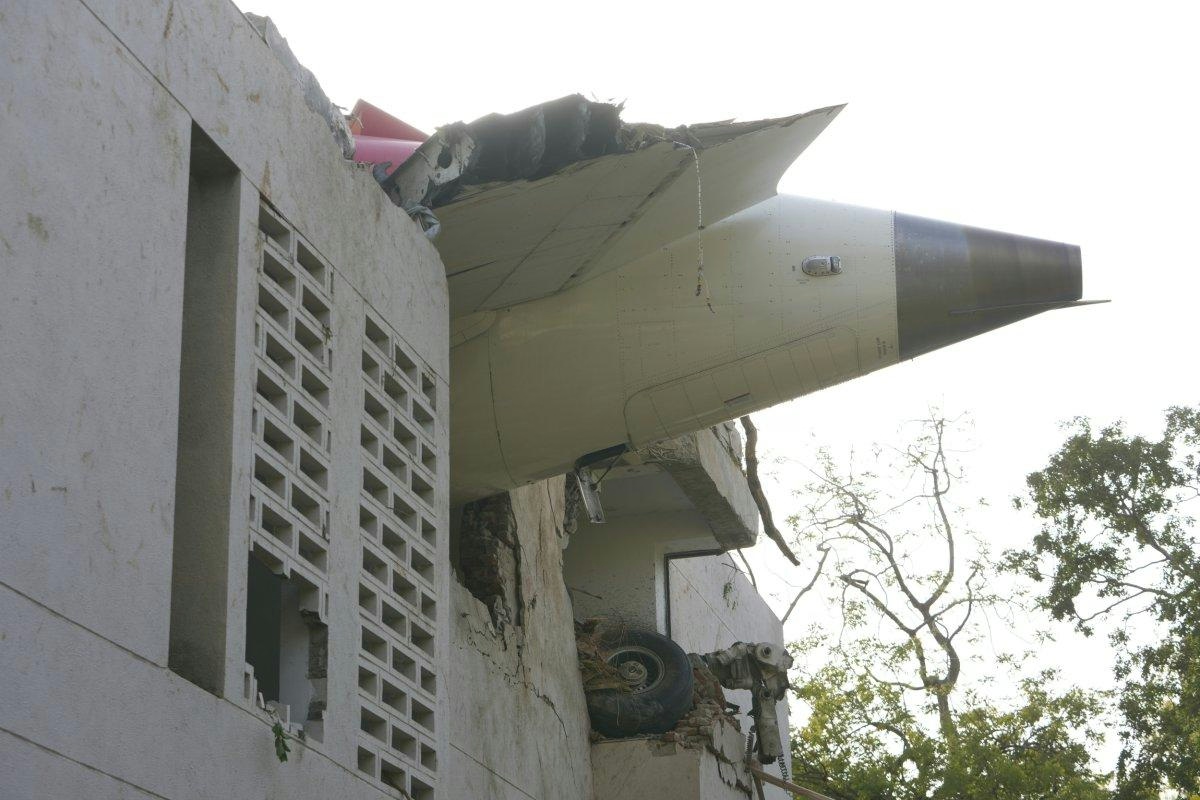
Another Air India Plane Descends 900 Feet After Takeoff, DGCA Investigates Following AI 171 Crash
Air India Faces Renewed Safety Scrutiny Following Second Inflight Incident
Just 38 hours after the tragic crash of Air India flight AI 171 in Ahmedabad, the airline has been confronted with another serious safety event. On June 14, Air India flight AI 187, operating a Boeing 777 from Delhi to Vienna, experienced a sudden and alarming loss of altitude shortly after takeoff, prompting an immediate investigation by India’s Directorate General of Civil Aviation (DGCA).
Details of the Incident
The aircraft, registered VT-ALJ, encountered severe thunderstorm conditions over Delhi at approximately 2:56 am. During the initial climb, the cockpit was alerted by a “stick shaker” warning—a critical signal indicating an imminent aerodynamic stall—accompanied by two “don’t sink” cautions from the Ground Proximity Warning System (GPWS). These warnings signaled a dangerous and abnormal descent of nearly 900 feet. Despite the severity of the situation, the flight crew successfully regained control, and the aircraft completed its journey to Vienna, landing safely after a nine-hour flight.
Subsequent analysis of flight data revealed multiple onboard warnings that were not fully disclosed in the initial pilot report. While the crew’s preliminary account mentioned only a “stick shaker due to turbulence after takeoff,” the flight data recorder indicated additional stall and GPWS alerts, underscoring the gravity of the event. In response, both pilots have been temporarily removed from flying duties, and Air India’s head of safety has been summoned for questioning as part of the ongoing DGCA investigation.
Implications for Air India and Indian Aviation
This incident compounds the challenges facing Air India amid heightened scrutiny following the AI 171 crash, which resulted in several fatalities and raised urgent concerns about the airline’s safety culture and operational standards. The airline’s ambitious Vihaan.AI transformation program, designed to position Air India as a world-class global carrier, now faces significant reputational and operational hurdles.
The DGCA has intensified its oversight of Air India’s fleet and safety protocols in light of these events. Although recent inspections of the airline’s Boeing 787 fleet did not uncover major safety deficiencies, the recurrence of critical inflight warnings has reignited broader concerns regarding Boeing aircraft safety and the robustness of India’s aviation regulatory framework. These developments carry potential ramifications beyond Air India, with possible impacts on inbound tourism and business travel to India.
An Air India spokesperson confirmed that the pilot’s initial report was promptly shared with the DGCA in accordance with regulatory requirements. The spokesperson added that the pilots involved have been off-rostered pending the outcome of the investigation.
On June 17, the DGCA publicly expressed concern over “recent maintenance-related issues” and directed Air India to improve coordination among its engineering, operations, and ground handling divisions. The regulator emphasized the urgent need for a renewed focus on safety as the airline navigates this turbulent period.
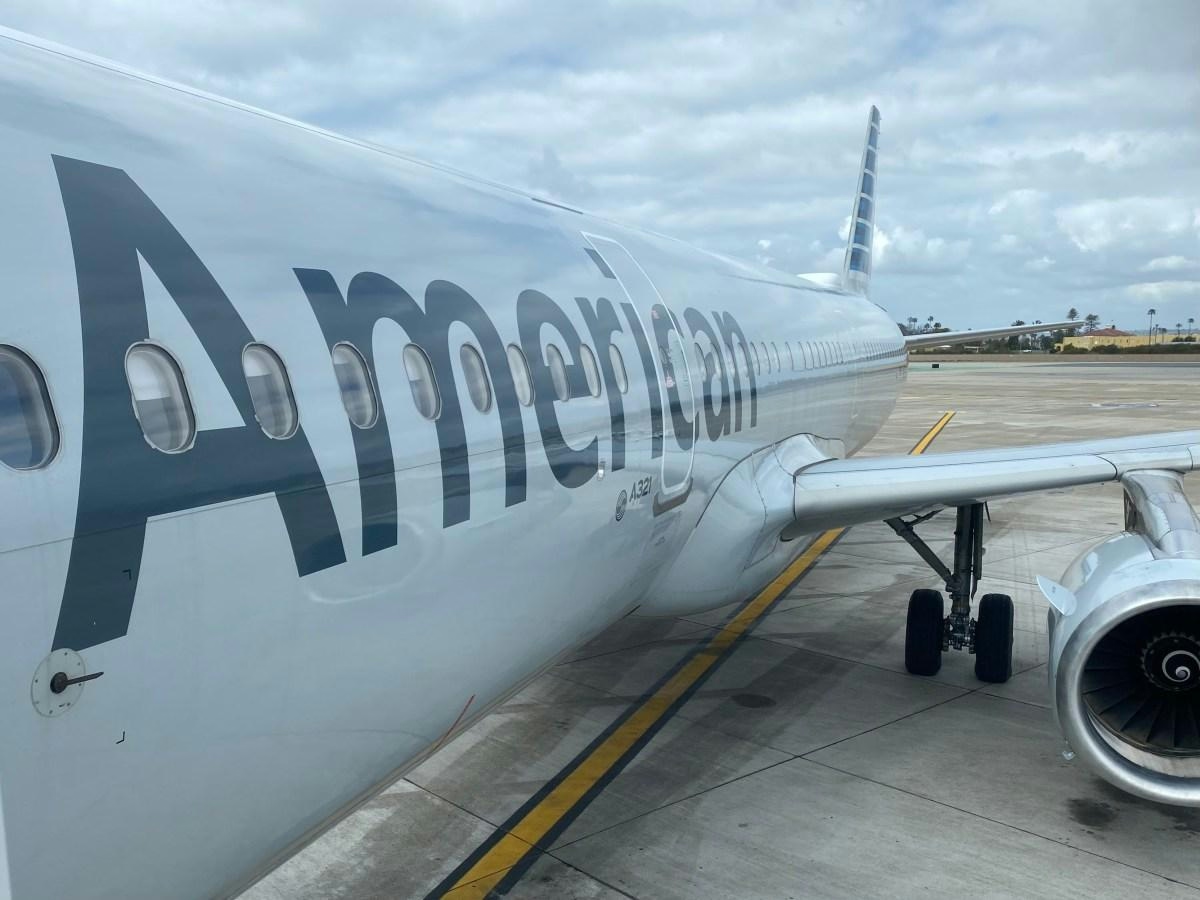
American Airlines Airbus A321 Returns to Service After Engine Issue Led to Overweight Landing in Phoenix
American Airlines Airbus A321 Returns to Service Following Engine Malfunction and Overweight Landing in Phoenix
An American Airlines Airbus A321-200 has resumed operations after an emergency landing at Phoenix Sky Harbor International Airport (PHX) caused by an engine malfunction shortly after departure. The incident occurred on Wednesday, June 25, involving flight AA1823, which was en route from Phoenix to Charlotte Douglas International Airport (CLT) in North Carolina.
Incident Overview
The aircraft, carrying 201 passengers and crew, departed Phoenix at 12:27 p.m. local time, approximately 12 minutes behind schedule. Shortly after takeoff, the flight crew reported an overheating issue with the number 2 engine. Passengers and witnesses described hearing a loud boom accompanied by smoke and visible flames emanating from the engine in flight. In response, the crew promptly shut down the affected engine as a precautionary measure and declared an emergency, requesting an immediate return to Phoenix.
Air traffic control directed the aircraft to climb and maintain an altitude of 5,000 feet while executing a turnaround for landing on runway 8, selected due to prevailing wind conditions. However, operating on a single engine amid the intense Arizona heat, the aircraft struggled to gain altitude, reaching only about 4,000 feet before commencing its approach.
Emergency Landing and Response
As the aircraft prepared to land, the pilots communicated the necessity of an overweight landing, indicating that the aircraft was heavier than its maximum certified landing weight due to unburned fuel. They also requested that fire and rescue services be on standby, citing concerns about hot brakes and the earlier engine overheating.
The flight crew informed air traffic control:
*"We're gonna go ahead right now and declare an emergency for overweight landing. [...] And for Fire Rescue, for 1823, just be prepared, we're gonna be an overweight landing. Our brakes may be hot. And we had an overheat on the right hand engine, engine 2."*
Despite these challenges, the aircraft landed safely at Phoenix Sky Harbor, vacated the runway without incident, and was met by emergency personnel for inspection. The Federal Aviation Administration (FAA) confirmed the safe landing and acknowledged the crew’s report of the engine issue.
Aftermath and Return to Service
Following a comprehensive inspection and any necessary maintenance, the Airbus A321 returned to service on Friday, June 27. American Airlines has reported no injuries among passengers or crew. While there has been no public commentary on market reactions or competitor responses, the airline has emphasized its commitment to passenger safety and adherence to regulatory standards.
This incident highlights the critical importance of crew training, emergency preparedness, and the rigorous safety protocols that underpin commercial aviation operations.
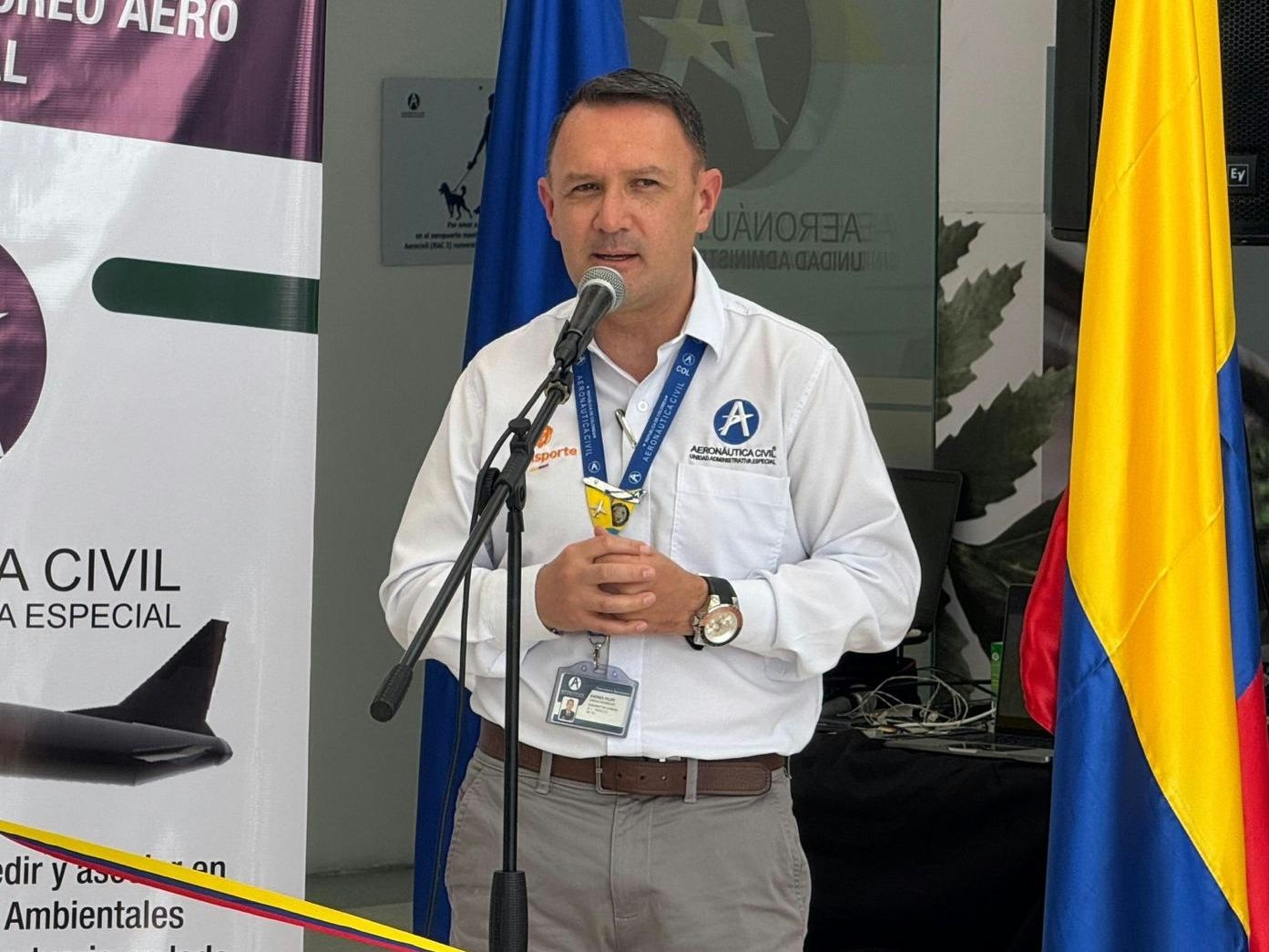
F-AIR Colombia Expects 25,000 Daily Visitors at 12th International Aeronautics Fair
F-AIR Colombia Anticipates 25,000 Daily Visitors at 12th International Aeronautics Fair
The 12th International Aeronautics and Space Fair (F-AIR Colombia) is scheduled to take place from July 9 to 13, 2025, at José María Córdova International Airport. Organized by the Colombian Aerospace Force with support from the Civil Aviation Authority and regional partners, the event will convene industry leaders, government officials, and aviation enthusiasts from approximately 15 countries. The fair aims to showcase the latest advancements in both civil and military aviation, reinforcing its status as a premier aerospace event in Latin America.
Focus on Innovation and Emerging Technologies
A key highlight of this edition will be the integration of unmanned aerial vehicles, underscored by a dedicated drone show. This emphasis on cutting-edge technology reflects F-AIR’s commitment to presenting the forefront of aerospace innovation. The event will also feature forums addressing investment opportunities in Maintenance, Repair & Overhaul (MRO), a sector that has attracted considerable international interest. Colombia’s growing prominence in engine overhaul and structural maintenance has positioned it as a strategic hub for MRO activities. Major companies, including MRO Holdings, are preparing significant investments, with announcements anticipated during the fair. Airlines such as LATAM and Avianca have been invited to participate, further highlighting the event’s regional importance.
Navigating Global Challenges and Operational Complexities
The 2025 fair takes place amid considerable challenges facing the global aviation sector. Industry analysts forecast robust growth in the fighter jet market through 2030, driven by modernization programs and escalating geopolitical tensions. However, recent funding reductions by the U.S. Air Force—particularly cuts to the JetZero program for fiscal year 2026—may affect related projects and investments worldwide. These developments are expected to intensify competition and prompt strategic realignments among aerospace manufacturers, with the U.S. market continuing to exert significant influence.
Organizers of F-AIR Colombia face complex logistical and security demands, with daily attendance expected to reach up to 25,000 visitors. The event requires meticulous coordination of airport operations, exhibition space allocation, and mobility management within an active commercial airport adjacent to a military base. Security protocols will involve multiple layers of protection and collaboration among various security forces to ensure a safe and seamless experience.
Colonels Andrés Felipe Vargas, Director of F-AIR Colombia, and Juan José López Duque, Director of Operations, highlighted the scale of these challenges in a recent interview. Col. López emphasized the necessity of long-term planning to maintain the fair’s high profile and operational efficiency, noting that space allocation is particularly demanding given the venue’s dual commercial and military functions. Coordination for demonstrations and logistics begins almost immediately after each edition concludes. Col. Vargas added that the airport’s increased activity since the inaugural fair has made managing interruptions more complex, while rising expectations from attendees continue to raise the organizational bar.
As the global aviation industry undergoes transformation and uncertainty, F-AIR Colombia 2025 seeks to position the country as a center for innovation, investment, and regional collaboration in aerospace.
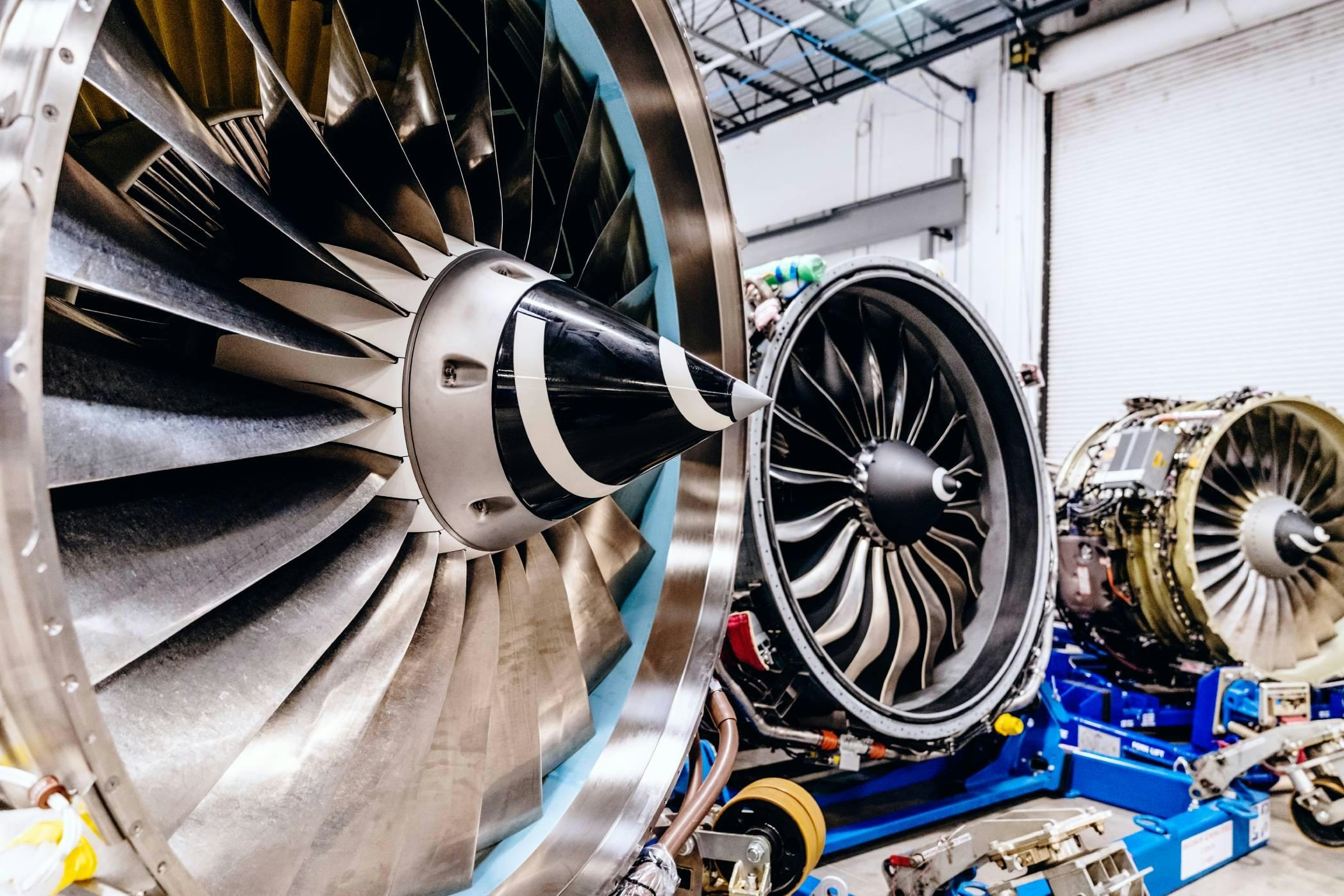
Willis Lease Finance Sells Consultancy Unit to Joint Venture with Mitsui & Co.
Willis Lease Finance Sells Consultancy Unit to Joint Venture with Mitsui & Co.
COCONUT CREEK, Fla., June 30, 2025 — Willis Lease Finance Corporation (NASDAQ: WLFC), a prominent lessor of commercial aircraft engines and provider of global aviation services, has finalized the sale of its consultancy and advisory subsidiary, Bridgend Asset Management Limited (BAML), to its joint venture with Mitsui & Co., Ltd. The joint venture, Willis Mitsui & Co. Engine Support Limited (WMES), will now incorporate BAML under the new name Willis Mitsui & Co. Asset Management Limited (WAML). This integration marks a significant expansion of WMES’s asset management and technical consultancy capabilities.
Strategic Expansion of WMES
The transaction is designed to enhance WMES’s platform by adding technical consultancy and records management services, thereby improving operational efficiency and broadening its presence in aviation asset management. Founded in 2011 and headquartered in Dublin, WMES currently manages approximately $380 million in assets, a figure expected to increase as the joint venture expands its service offerings.
Austin C. Willis, Chief Executive Officer of WLFC, described the deal as a milestone for both Willis Lease Finance and its partnership with Mitsui. He emphasized that the sale represents the first step toward closer collaboration and substantial growth within WMES. Yuichi Nagata, General Manager of the Aerospace Business Division at Mitsui, echoed this sentiment, noting that the transaction deepens the partnership and positions WMES to better meet the evolving demands of the global aviation market. He highlighted the joint venture’s strengthened role as a comprehensive provider of engine-related services.
Implications and Challenges
While the sale allows WLFC to concentrate on its core financial leasing operations, it also introduces challenges related to the integration of the consultancy unit into the joint venture. Ensuring regulatory compliance and managing potential cultural differences between the companies will require careful oversight. Market responses may vary; some investors may welcome WLFC’s sharpened strategic focus, while others might express concerns regarding the financial impact of the divestiture. Furthermore, this move could prompt competitors to enhance or acquire consultancy services, potentially intensifying competition within the sector.
WLFC will maintain a 50% ownership stake in WMES and continue to utilize the joint venture’s expanded capabilities to support its leasing business. The company also plans to pursue additional strategic initiatives aimed at growing its aviation portfolio.
About Willis Lease Finance Corporation
Willis Lease Finance Corporation specializes in leasing large and regional spare commercial aircraft engines, auxiliary power units, and aircraft to airlines, engine manufacturers, and maintenance providers worldwide. Its integrated services encompass engine and aircraft trading, lease pools, asset management, and end-of-life solutions for aviation materials. Through subsidiaries such as Willis Engine Repair Center®, Jet Centre by Willis, and Willis Aviation Services Limited, the company offers engine maintenance, aircraft disassembly, storage, and airport services. Additionally, Willis Sustainable Fuels is dedicated to developing projects that support the decarbonization of aviation.
*Forward-looking statements in this release involve risks and uncertainties. Actual results may differ materially from expectations.*
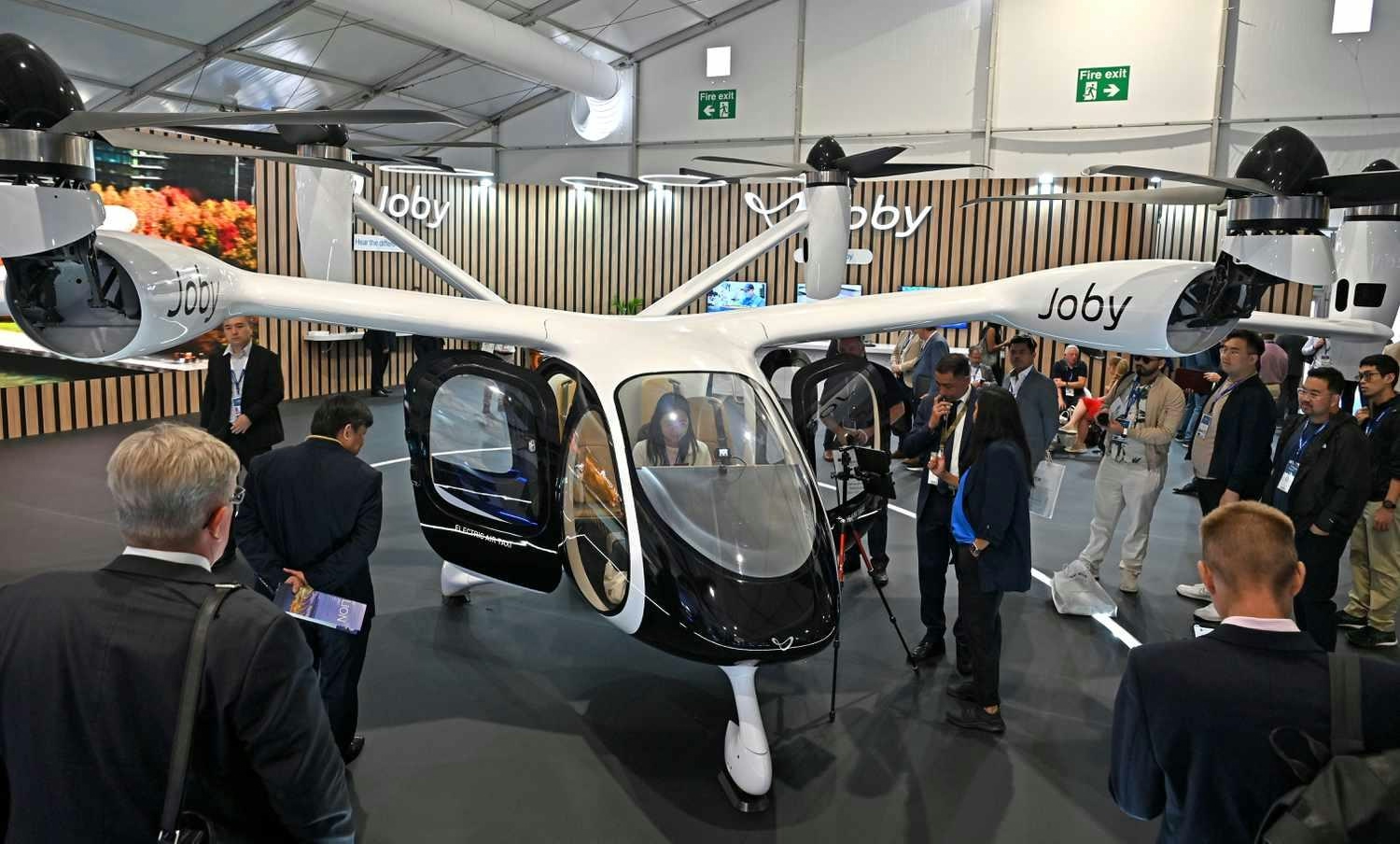
Why Joby Aviation Stock Is Soaring Today
Why Joby Aviation Stock Is Soaring Today
Shares of Joby Aviation (NYSE: JOBY) surged by 11.6% on Monday, significantly outperforming broader market indices, with the S&P 500 and Nasdaq Composite rising only 0.4% and 0.5%, respectively. This sharp increase reflects a series of positive developments for the electric vertical takeoff and landing (eVTOL) aircraft manufacturer, particularly in the Middle East and the United States.
Milestone Achieved in Dubai
Joby Aviation recently completed a series of wingborne test flights with its eVTOL air taxi in Dubai, marking the first such flights in the United Arab Emirates. This milestone represents a crucial step toward the company’s goal of launching commercial air taxi services in the region. The tests were conducted in collaboration with Dubai’s Roads and Transport Authority (RTA), the Dubai Civil Aviation Authority, and the UAE’s General Civil Aviation Authority. Earlier this year, Joby secured an exclusive six-year agreement with the RTA and Skyports to operate air taxis in Dubai.
Commercial operations in Dubai are anticipated to commence in 2026, positioning Joby as a leading player in the global advanced air mobility market. The company’s exclusive rights to the Dubai market provide a significant competitive edge amid growing global interest in urban air mobility solutions.
Strategic Partnerships and U.S. Progress
Investor sentiment has also been bolstered by Joby’s recent initiatives in the United States. The company conducted a public demonstration of its technology in New York City, showcasing its capabilities to regulators and the public alike. Additionally, Joby received a new order aimed at enhancing U.S. defenses against drone threats, further underscoring its technological prowess. Its strategic partnership with Delta Air Lines is viewed as a critical factor in reducing operational risks and accelerating market entry, particularly within the U.S.
Competitive Environment and Financial Considerations
Despite Joby’s apparent leadership in the eVTOL sector, the competitive landscape remains highly dynamic. Rival Archer Aviation recently announced an $850 million stock offering, highlighting both the capital-intensive nature of the industry and the increasing investor appetite for advanced air mobility ventures.
Joby’s strong balance sheet offers some financial flexibility as it transitions from pre-revenue status to commercial operations. Nonetheless, analysts warn that the company may need to raise additional capital to scale production, which could result in shareholder dilution. Market reactions are mixed; some analysts have downgraded Joby due to concerns over near-term growth prospects, while others emphasize the long-term potential of its electric air taxi service.
Outlook
Joby Aviation aims to launch commercial operations as early as next year, with Dubai services expected to begin in 2026. The company’s recent achievements, strategic alliances, and exclusive market agreements have reinforced its standing in the rapidly evolving eVTOL industry. However, investors should remain cautious of the challenges associated with scaling production and the intensifying competition within the sector.
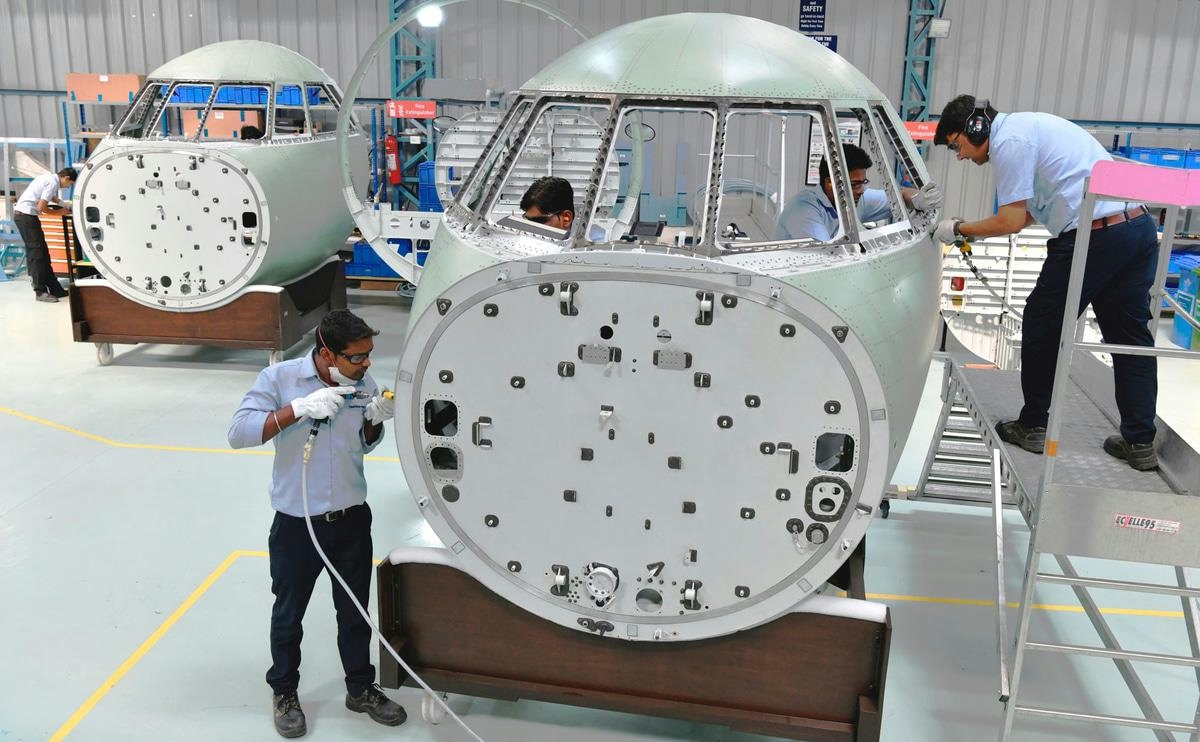
Reliance Defence Partners with US Firm for Military Aircraft MRO in Nagpur
Reliance Defence Partners with US Firm to Establish Military Aircraft MRO Facility in Nagpur
Reliance Infrastructure, under the leadership of Anil Ambani, has announced a significant expansion into the defence sector with plans to develop a maintenance, repair, and overhaul (MRO) facility for military aircraft and equipment at the Mihan Special Economic Zone (SEZ) in Nagpur. This initiative follows the company’s recent decision to manufacture Falcon 2000 business jets in the city and represents the first defence-focused MRO facility in Nagpur, as well as the third of its kind in the region.
Strategic Partnership and Facility Scope
Reliance Defence, a wholly owned subsidiary of Reliance Infrastructure, has entered into a strategic partnership with US-based Coastal Mechanics Inc (CMI) to develop the MRO facility. The collaboration is designed to capitalize on substantial business opportunities, particularly in extending the operational lifespan of the Indian Air Force’s (IAF) ageing fleet. Reliance Defence estimates the potential market value of this venture at approximately ₹20,000 crore over the next decade.
The proposed MRO facility will service a diverse range of platforms, including British-made Jaguars, Russian MiG-29s, legacy L-70 anti-aircraft guns, and Apache attack helicopters. The project is expected to require an initial investment of ₹500 crore and is projected to generate around 200 jobs upon commencement. Reliance Defence currently holds over 180 acres within the Mihan-SEZ, providing ample space for future expansion. This landholding also supports the company’s ongoing collaboration with French aerospace giant Dassault for Falcon jet production.
Phased Development and Operational Focus
Reliance Defence plans to adopt a phased approach, beginning with a comprehensive assessment of the Indian defence forces’ requirements before gradually expanding the facility’s capabilities to cover a broad spectrum of systems. The MRO is anticipated to handle over 100 Jaguars and MiG-29s or Bisons each—aircraft that have been in service with the IAF for more than three decades. This aligns with India’s evolving defence strategy, which emphasizes life cycle extension over outright asset replacement. The facility aims to address challenges related to obsolescence management and to upgrade older platforms with the latest technologies.
In addition to servicing domestic defence forces, Reliance Defence is targeting export markets with ambitions to become one of India’s top three exporters of defence products. This project is poised to be the first in the country capable of overhauling and extending the operational life of aircraft from multiple international origins. The company projects annual revenues of ₹2,000 crore from the MRO, serving not only the IAF but also the Indian Navy and Army.
Challenges and Industry Context
The partnership with CMI brings considerable expertise, particularly in maintaining older fleets, drawing on CMI’s experience with the US Department of Defense. The facility aims to fill critical gaps left when original equipment manufacturers discontinue support for certain subsystems. Reliance Defence does not foresee direct competition with the IAF’s existing base repair depots, as its focus will be on regular overhauls and life cycle extensions, thereby complementing the armed forces’ current maintenance infrastructure.
Nonetheless, the venture faces several challenges, including navigating complex regulatory approvals, ensuring compliance with international standards, and managing the logistical demands of large-scale aircraft maintenance. The MRO sector is highly competitive, with recent trends indicating increased liquidity demands for new-generation engine leasing and strategic expansions by global players such as Embraer in India. These dynamics are likely to attract close scrutiny from defence analysts and investors, while also prompting competitive responses from other firms seeking to establish or enhance their own MRO capabilities.
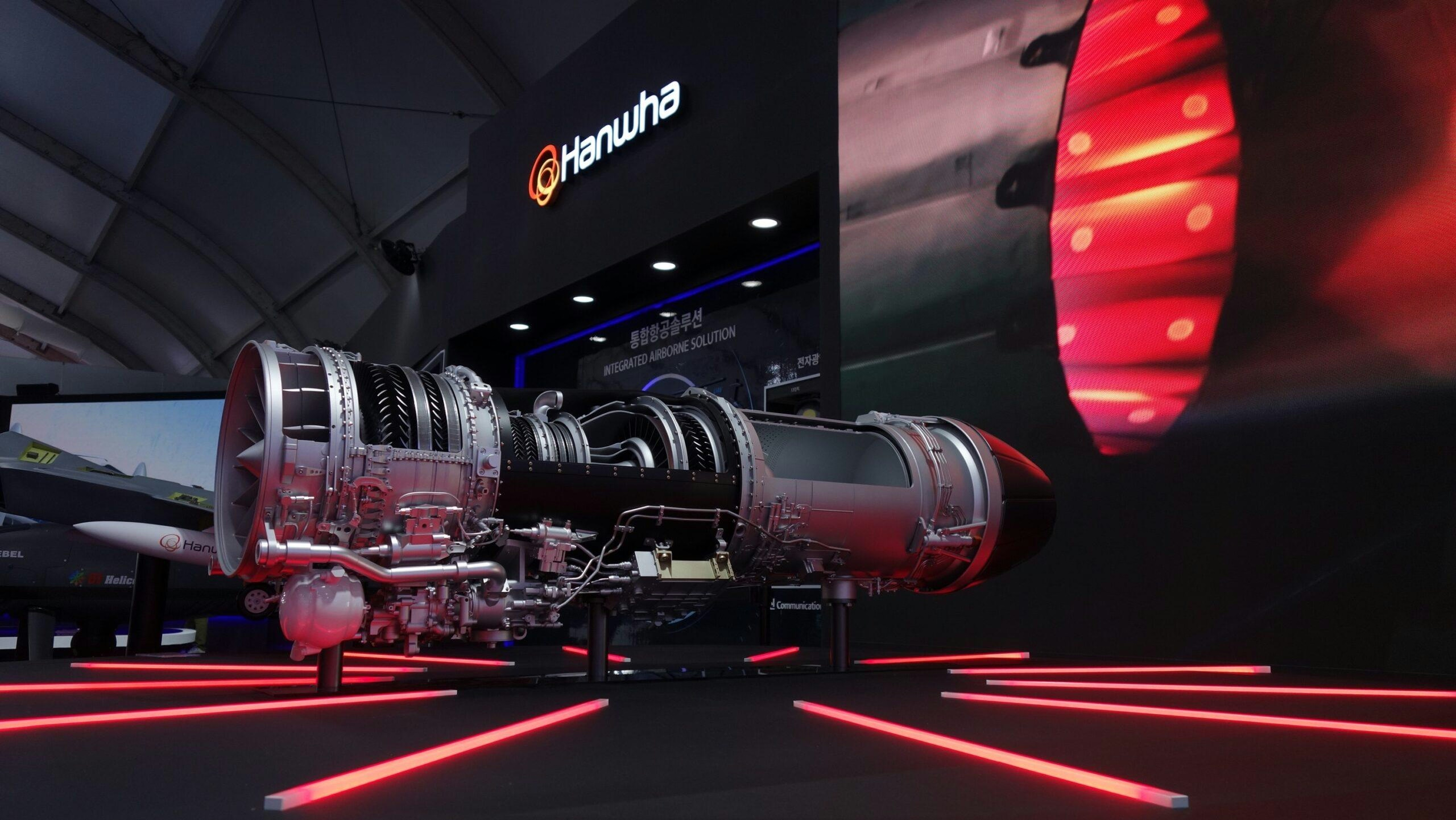
Hanwha Aerospace signs $459 million contract for KF-21 jet engines
Hanwha Aerospace Secures $459 Million Contract for KF-21 Jet Engines
Hanwha Aerospace has finalized a follow-up contract worth 623.2 billion won ($459.3 million) with South Korea’s Defense Acquisition Program Administration (DAPA) to supply engines for the KF-21 supersonic fighter jets. This agreement, announced on Thursday, supplements a previous contract valued at 556.2 billion won signed earlier in 2023, bringing the total value of Hanwha’s KF-21 engine contracts to approximately 1.18 trillion won.
Contract Details and Production Plans
Under the terms of the new deal, Hanwha Aerospace is tasked with delivering 80 F414 engines for the initial mass production batch of KF-21 jets by December 2028. The contract also encompasses comprehensive logistics support, including maintenance parts, technical manuals, and on-site technical assistance to ensure operational readiness and sustainment.
Hanwha Aerospace has been a pivotal player in South Korea’s military aviation sector since 1979, having produced over 10,000 engines for aircraft such as the KF-5, KF-16, and F-15K. To enhance its manufacturing capabilities, the company has invested 40 billion won in establishing a smart factory dedicated to jet engine production. Hanwha emphasized its commitment to leveraging advanced aviation engine technology to guarantee timely delivery and to contribute to the development of next-generation propulsion systems for national defense.
Strategic Importance and Regional Implications
The KF-21 program, initiated in 2015, aims to replace South Korea’s aging fleet of F-4 and F-5 fighters and represents a critical component of the country’s air force modernization efforts. Deployment of the new aircraft is scheduled to commence by 2028. However, the program faces challenges related to the integration of advanced technologies, which could potentially cause production delays. The scale and complexity of the project require meticulous management to adhere to delivery timelines.
Despite these challenges, the KF-21 has attracted growing market interest as a cost-effective alternative to Western fighter jets. This has prompted intensified competition from foreign manufacturers seeking to enhance their own offerings in response to the KF-21’s emergence. Regionally, Indonesia has reaffirmed its commitment to the KF-21 program, even as it moderates expectations for its indigenous KAAN fighter project. This development suggests a shift in regional defense priorities, with countries increasingly viewing the KF-21 as a viable and strategic option.
As Hanwha Aerospace advances its role in the KF-21 initiative, the company’s continued investments and technological expertise are poised to play a significant role in shaping the future of South Korea’s defense industry and its standing in the global military aviation market.
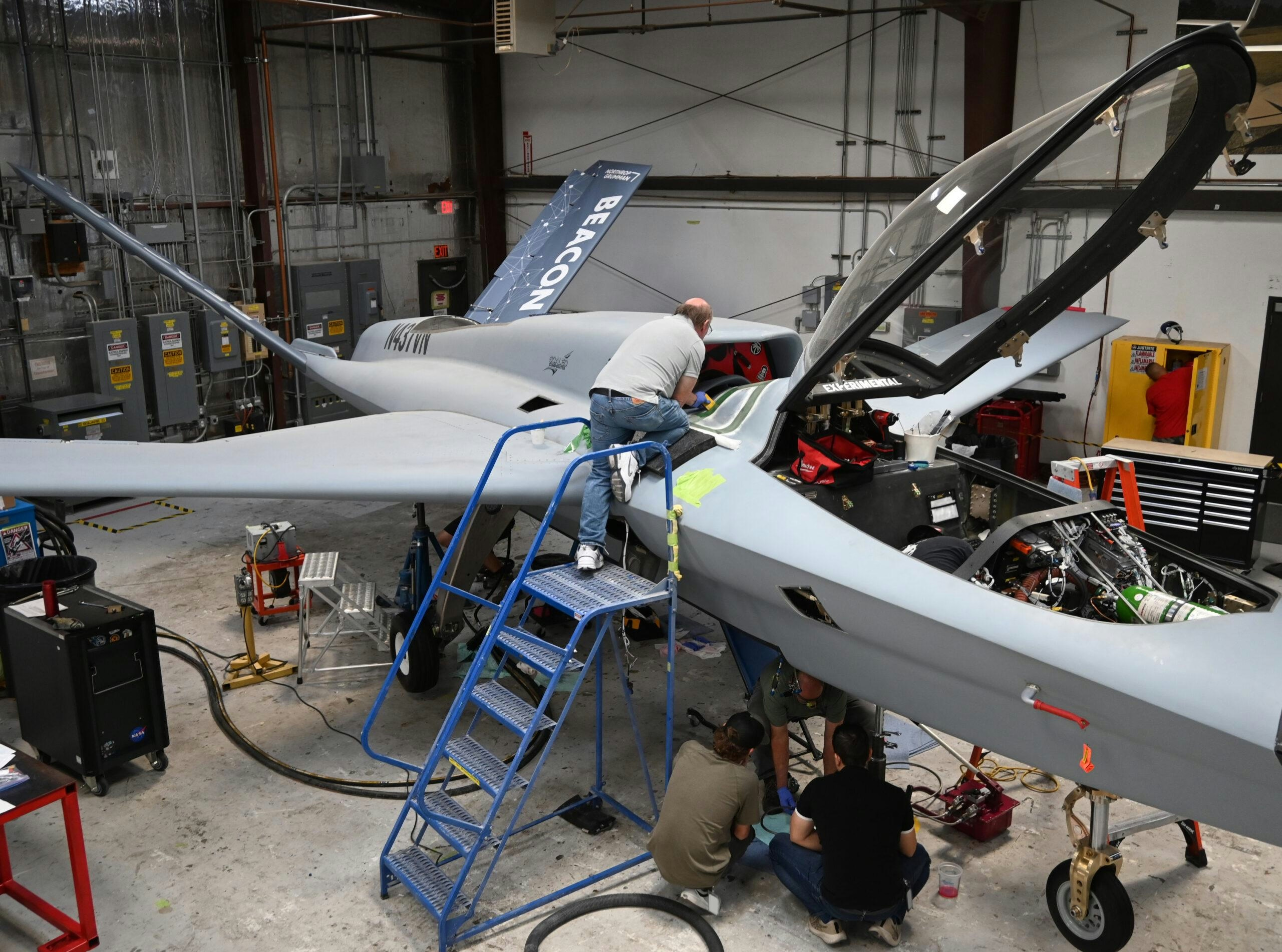
Model 437 Integrated into Beacon Autonomous Testbed Ecosystem
Model 437 Integrated into Beacon Autonomous Testbed Ecosystem
Scaled Composites has announced a major milestone in its collaboration with Northrop Grumman through the integration of the Model 437 Vanguard aircraft into Northrop’s Beacon autonomous testbed ecosystem. This partnership is designed to accelerate the development and validation of autonomous mission software by offering third-party developers an operationally relevant and fully integrated testing environment.
Rapid Development and Digital Engineering
The Model 437 completed its maiden flight on August 29, 2024, at the Mojave Air and Space Port in California, marking a significant step in its role as an airborne test platform for the Beacon program. The aircraft’s development timeline was notably swift, moving from detailed design to first flight in just 21 months. This rapid progress was made possible by Northrop Grumman’s “Digital Pathfinder” ecosystem, a digital engineering framework that employs digital twins to visualize and test technical modifications. This approach, previously utilized in the development of the B-21 Raider stealth bomber, has proven effective in reducing both development time and lifecycle costs.
Northrop Grumman characterizes Beacon as a “next-generation testbed ecosystem” aimed at enabling aerospace companies and autonomous flight software developers to deliver new mission capabilities within environments that closely replicate real-world conditions. The Model 437’s recent appearance in a new Beacon paint scheme visually underscores its central role in this initiative.
Collaborative Innovation and Manufacturing Precision
Following the Digital Pathfinder demonstration earlier in 2024, Scaled Composites undertook extensive modifications to the Model 437 to facilitate its integration into the Beacon ecosystem. The collaboration divided responsibilities, with Northrop Grumman focusing on the design and manufacturing of the wings, while Scaled Composites managed the rapid design, fabrication, and testing of the overall aircraft platform. The digital engineering process yielded remarkable efficiency, with less than 1% of the wing design requiring rework—significantly below the industry average of 15 to 20 percent—and project delays limited to under 2 percent.
A notable innovation in this process is the use of determinate assembly, which ensures that parts arrive perfectly aligned and ready for immediate assembly, thereby minimizing costly errors. Northrop Grumman highlights that precise, digitally based tooling designs optimize manufacturing workflows before physical production begins, enabling the creation of more complex and creative designs that traditional manufacturing methods cannot easily accommodate.
Challenges and Industry Response
Despite these technological advancements, integrating the Model 437 into the Beacon ecosystem presents several challenges. Ensuring real-time conflict detection and resolution within digital design tools remains a critical priority, alongside addressing safety concerns inherent in autonomous vehicle navigation. Furthermore, broader adoption of autonomous technologies, particularly in sectors such as agriculture, continues to face obstacles including high costs and limited user familiarity.
Market reactions to the Beacon initiative have been mixed, with some skepticism regarding the reliability and safety of autonomous systems. Competitors are responding by advancing their own innovations, focusing on enhanced assisted driving technologies and strengthening automotive cybersecurity measures to mitigate emerging risks.
Greg Morris, president of Scaled Composites, emphasized the company’s agility in meeting demanding timelines: “Modifying the Model 437 on such a short timeline for the Beacon autonomy initiative reflects Scaled’s ability to design, build, test—and in this case, modify—rapidly and effectively.”
As the Beacon program progresses, its success will hinge not only on continued technological innovation but also on effectively addressing industry concerns and demonstrating the reliability and safety of autonomous flight systems in operational environments.
Ask AeroGenie